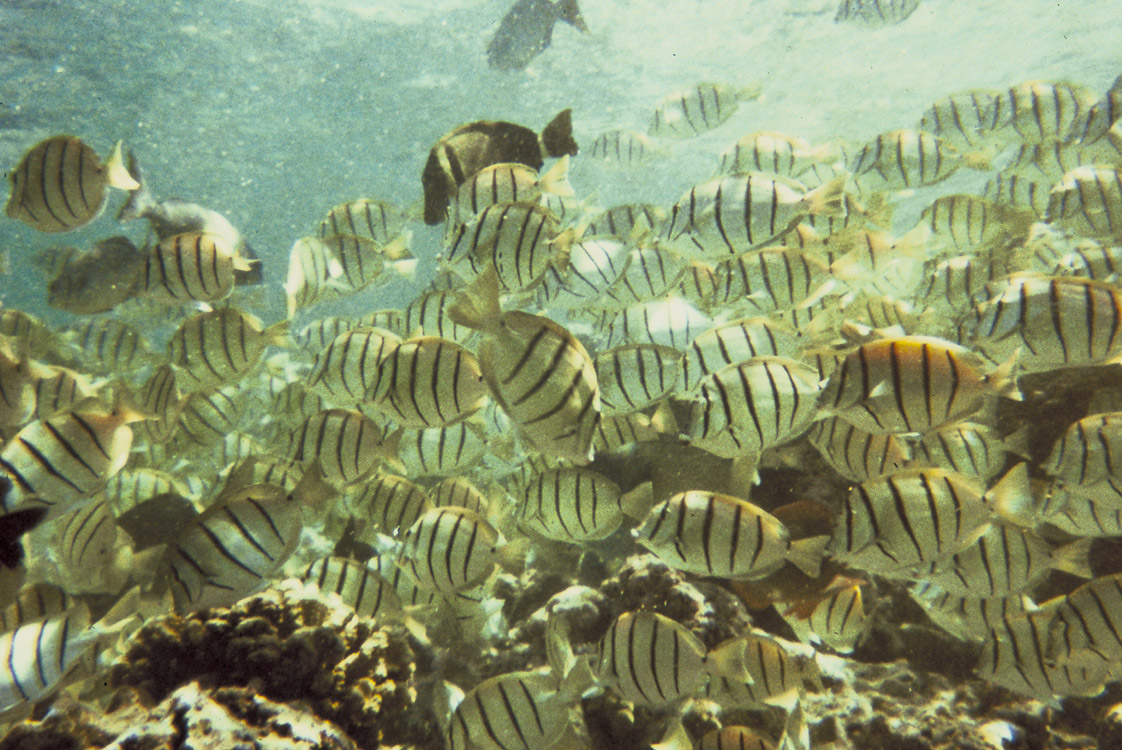If you thought the soap suds you flush down the drain every time you wash your hands or take a shower were innocent, then think again. A new study has shown that even very low levels of chemicals found commonly in household products can cause fish to loose their ability to huddle together in tightly knit shoals, which is a vital behaviour to help them avoid being caught by predators.
The compound is called 4-nonylphenol or 4NP, and is also used in sewage treatment works and in pesticides.
 Researchers from Mount Alison University in New Brunswick province, Canada, tested the effect of 4NP on banded killifish that live in the lakes of North America. In experimental tanks, when the fish were subjected to just 1 microgram of 4NP per litre - which within the permissible levels for rivers - they tended to swim at least twice as far away from each other than when they were swimming in water with no 4NP in it.
Researchers from Mount Alison University in New Brunswick province, Canada, tested the effect of 4NP on banded killifish that live in the lakes of North America. In experimental tanks, when the fish were subjected to just 1 microgram of 4NP per litre - which within the permissible levels for rivers - they tended to swim at least twice as far away from each other than when they were swimming in water with no 4NP in it.
It's thought that the 4NP interferes with the fishes' ability to smell each other, which is how they know to stick together in tight shoals. Fish tend to develop a particular smell depending on where they have been and what they have been eating - so an individual fish prefers to hang out with another fish that smell similar to themselves.
And 4NP is lipophillic which means it tends to stick to fatty substances, including fish, so it seems that the compound might form a coat on the skin of fish masking their natural smell.
The contaminant doesn't seem to alter their ability to detect other smells, such as food items that were hidden around the tanks. But it does seem to actively repel fish - the researchers also put a single fish in a long corridor of water and offered it two streams of water to swim towards. Each time the fish swam away from the stream that passed over another fish that had previously been soaked in mild 4NP solution for an hour.
The take home message from this piece of research is that we shouldn't assume that just because a chemical at certain concentrations doesn't kill animals and plants, certainly doesn't rule out the possibility that sub-lethal affects are altering the ability of those creatures to survive in the wild, especially when the natural world is becoming such a cocktail of different chemicals and pollutants that we throw into it.










Comments
Add a comment